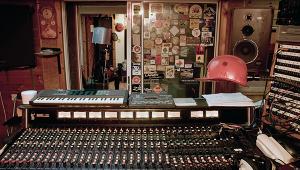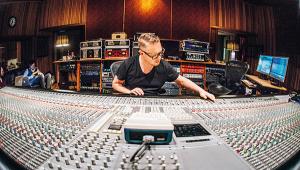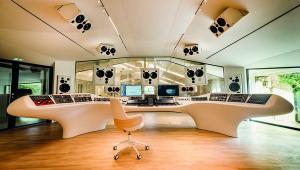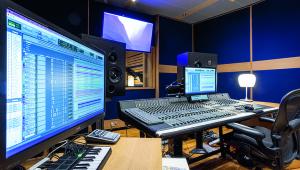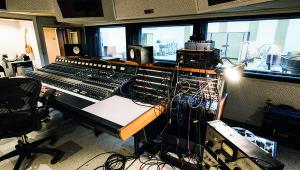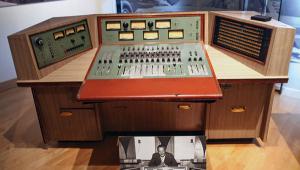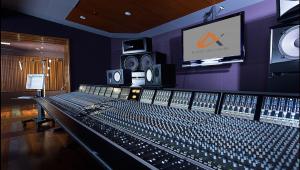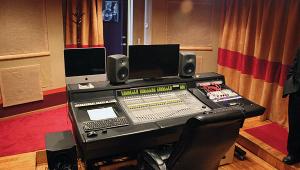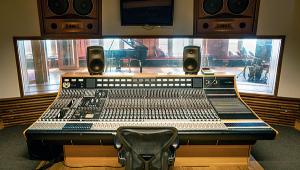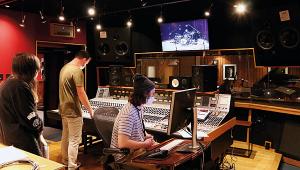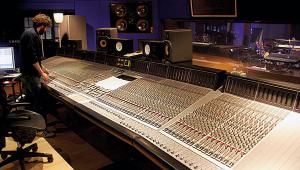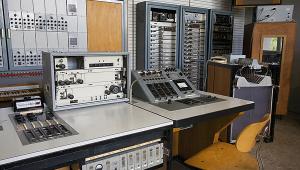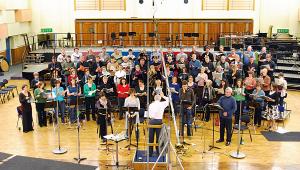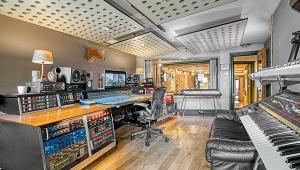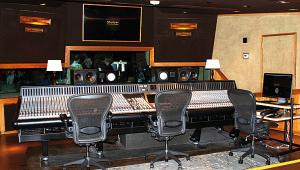Criteria Studios Miami Page 2
Gee Whizz
Come '75, enter the Gibb brothers, aka The Bee Gees, the group who in part inspired the kerfuffle of our intro. They set to work recording with Arif Mardin and Karl Richardson, who was the in-house engineer. Mardin had brought The Bee Gees to Atlantic, and their manager Robert Stigwood then took them onto his RSO Records, a smaller label distributed by Atlantic. When Stigwood and Atlantic split in 1975, Dowd, Mardin and Wexler, as Atlantic staffers, were no longer available to work with the brothers Gibb, so Richardson and producer Albhy Galuten took over. Their debut co-production together, The Bee Gees' Children Of The World, was the first time Barry Gibb utilised the falsetto that would mark their full-on mastery of disco.
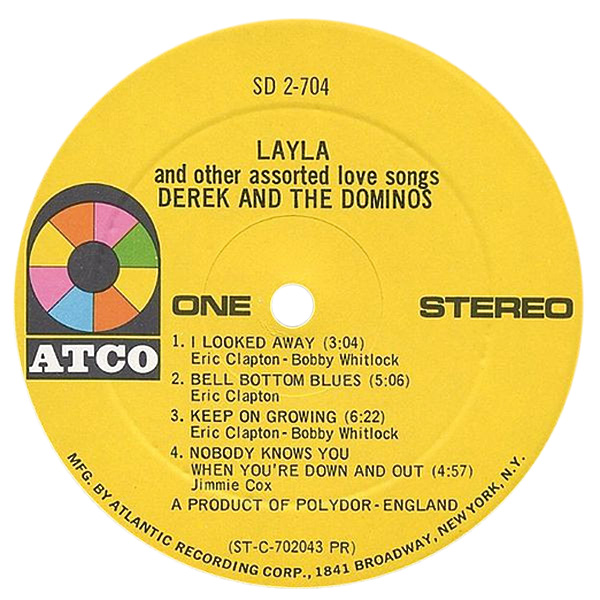
Bouncing Clever
Here's Richardson on the famous vocal technique. 'All the harmony parts were doubles and triples, and we would set the boys up on a single microphone – usually a Neumann U67 or U87 – and whoever was singing lead would go in the middle. Robin almost always had this cool vibrato in his delivery; Maurice had hardly any, and Barry would have vibrato but sometimes not, and when he did have it, it was more like tremolo. This gives you a unique blend. It might at first seem that [their voices] are very different from one another, but they're brothers, so they have this DNA thing going on.
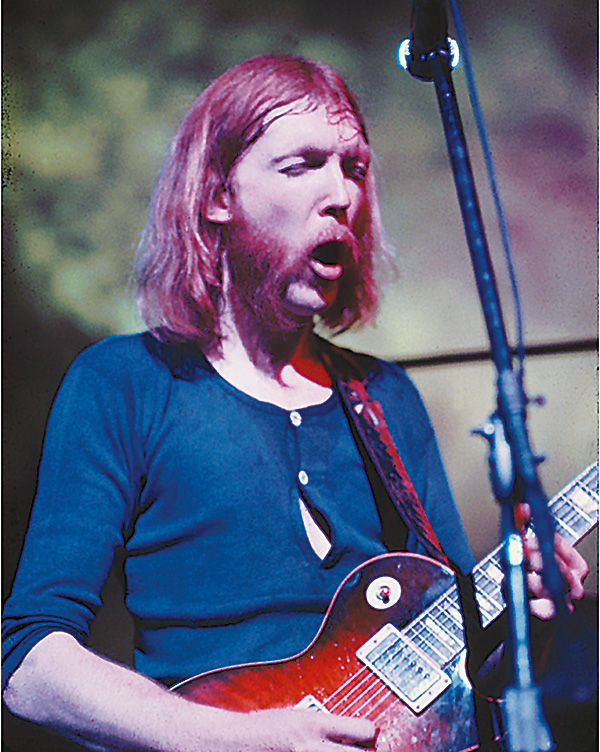
'I used to keep two 24-track machines in the room so we could record a lot of tracks of vocals and then bounce them down, using Dolby A noise reduction. So, a lot of The Bee Gees' vocal tracks are second-generation. We needed a lot of tracks because Barry liked to experiment with sounds. On "You Should Be Dancing" we had 18 tracks of percussion alone. We were bouncing and submixing all of this stuff every step of the way. And we wanted each part perfect, so it became a very punched-in world we lived in.'
Stigwood asked the Gibbs to author a few songs for Saturday Night Fever and they wrote the majority of 'Stayin' Alive' at the Chateau d'Herouville near Paris where they were in tax exile. They took it to Criteria to finish up and encountered a problem when drummer Dennis Bryon had to leave the sessions early due to the death of his mother. With no other top-notch drummer available, they took two bars from the drum track of the already-recorded 'Night Fever', then re-recorded them as a loop on a separate tape. When the track was released, the drummer was listed as Bernard Lupe.
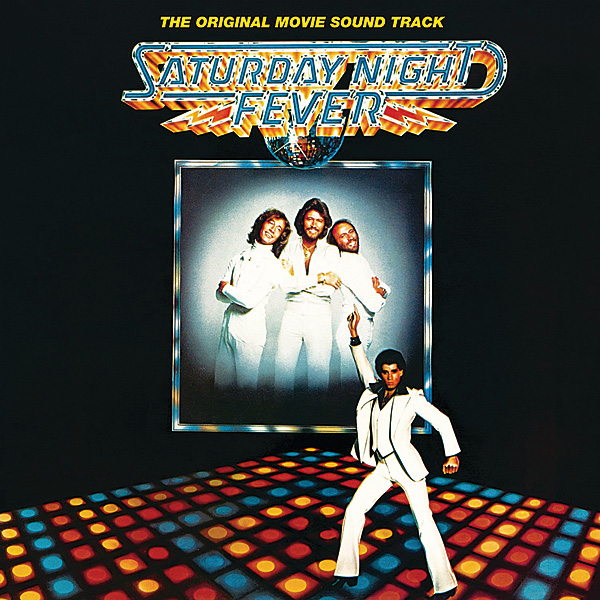
Water Music
Producer Albhy Galuten elaborates: 'Barry and I listened carefully to find a bar that felt really good. Everyone knows that it's more about feel than accuracy in drum tracks. We chose a bar that felt so good that we ended up using that same loop on "Stayin' Alive" and "More Than A Woman". To make the loop, we copied the drums onto one-quarter-inch tape. Karl spliced the tape and rigged it so that it was going over a mic stand and around a plastic reel.
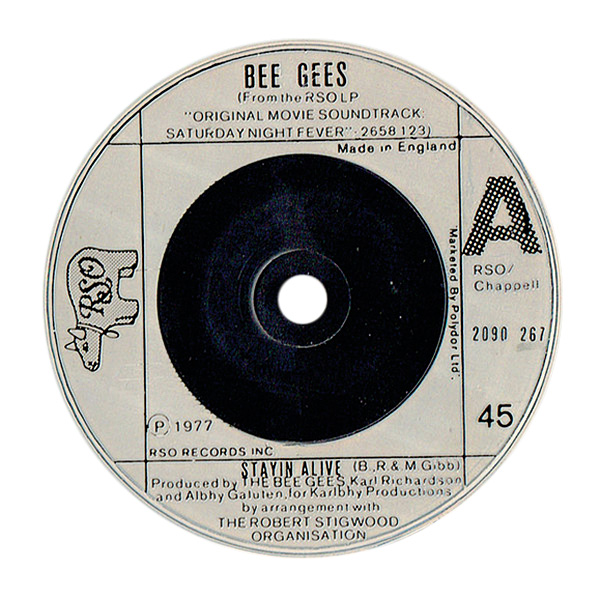
'At first, we were doing it just as a temporary measure. As we started to lay tracks down to it, we found that it felt really great – very insistent but not machine-like. It had a human feel... If I had been working for a technology company then and knew what I was doing, I would have tried to patent the idea. Nonetheless, it changed a lot of things. That first loop was a watershed event in our life and times.'

That's no exaggeration. By the time Frankie Valli had recorded the title track for the movie Grease at Criteria, the studio had produced six chart-topping US singles in the first six months of 1978 alone. The studio expanded again in 1981, adding Studio E, a large and pretty fancy space with 27ft peaked ceilings, decorated with Cuban tile, stained glass, and, of course, a waterfall. It was fitted with a custom 56-channel MCI console and twin 24-track machines and, in 1984, Criteria was the first studio in the southeastern US to install a Solid State Logic mixing console.

Flow Control
However, Criteria found the music industry downturn tough enough for Emerman to sell up in 1991. It was passed on again in 1999, being acquired by The Hit Factory who renamed it The Hit Factory Criteria Miami and added Studio F. It was here that Jennifer Lopez, Lil Wayne, Shakira, Paloma Faith and Alicia Keys among many others continued to create hits, the studio reverting back to its original name in 2017.
Rather than collecting esoteric hardware as other long-established studios tend to do, today Criteria boasts virtually the same set-up in each control room, so that sessions can be moved throughout the building without technical difficulty. And its studios – now totalling seven in all – continue to thrive.
